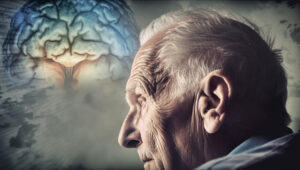
Schizophrenia, a intricate and frequently misconstrued mental health condition, has a global reach, impacting millions of individuals. Recognizing the early signs of schizophrenia is crucial for timely diagnosis and intervention. In this article, we will delve into this topic, providing you with valuable insights to help identify potential signs of schizophrenia in yourself or a loved one.
Table of Contents
ToggleIntroduction to Early Signs of Schizophrenia

It is a profound mental ailment that influences an individual’s thoughts, emotions, and behaviors. It can be challenging to detect in its early stages, as the symptoms can be subtle and easily overlooked. However, understanding the early signs of schizophrenia is vital for seeking help and support when needed.
Understanding Schizophrenia
It is characterized by a range of symptoms that may include hallucinations, delusions, disorganized thinking, and emotional disturbances. These symptoms can vary from person to person, and the disorder often emerges in late adolescence or early adulthood.
The Importance of Early Detection of Schizophrenia
Early detection of schizophrenia is essential for several reasons. It allows for prompt treatment, which can significantly improve an individual’s quality of life. It also reduces the risk of complications associated with untreated schizophrenia, such as social isolation, unemployment, and self-harm.
Common Early Signs and Symptoms of Schizophrenia
Social Withdrawal
One of the early signs of it is social withdrawal. Individuals may become increasingly isolated, showing a reluctance to engage in social activities or maintain relationships.
Deteriorating Work or Academic Performance
It can lead to a decline in work or academic performance. A person who was once diligent and successful may start struggling to focus and complete tasks.
Unusual Beliefs or Perceptions
Individuals facing it may develop unusual beliefs or perceptions, often referred to as delusions. These can include believing in conspiracy theories or feeling persecuted without cause.
Disorganized Thinking and Speech
Disorganized thinking and speech are hallmark symptoms of schizophrenia. A person may have difficulty organizing their thoughts and communicating coherently.
Emotional Disturbances

Mood Swings
Mood swings are common in individuals with schizophrenia. They can rapidly shift from one emotional state to another.
Inappropriate Emotions
It can also lead to the display of inappropriate emotions. For example, someone may laugh at sad news or display an unusual lack of emotional response.
Changes in Sleep Patterns

People facing this problem may experience significant changes in their sleep patterns. This can involve difficulty falling asleep, frequent awakenings, or excessive sleep.
Neglect of Personal Hygiene

A noticeable sign of it is the neglect of personal hygiene. Individuals may stop caring for themselves, leading to poor grooming and cleanliness.
Impact on Relationships
It can strain relationships with family and friends. The affected individual’s behavior and thought patterns may become increasingly difficult to understand and relate to.
The Role of Genetics
Genetic factors contribute to the emergence of schizophrenia. If you have a family history of the disorder, you may be at a higher risk.
Environmental Factors
Environmental factors, such as exposure to stress or trauma during childhood, may also contribute to the development of schizophrenia.
Diagnosing Schizophrenia
Evaluating it entails a thorough examination conducted by a mental health expert. This typically includes a review of symptoms, medical history, and psychological evaluations.
Treatment Options
Treatment for it often involves a combination of medication, therapy, and support services. Swift action in the early stages can result in more favorable treatment results.
Coping Strategies
Individuals living with it can benefit from learning coping strategies to manage their symptoms and improve their quality of life.
Support for Individuals and Families
Support is crucial for both individuals with schizophrenia and their families. Essential aid can be offered through support groups and counseling.
Conclusion

In conclusion, understanding the early signs of schizophrenia is vital for early intervention and improved outcomes. If you or someone you know is exhibiting these signs, seek professional help promptly.
Frequently Asked Questions (FAQs)

Q: What causes schizophrenia?
Schizophrenia is believed to result from a combination of genetic and environmental factors.
Q: Can schizophrenia be cured?
Schizophrenia is a chronic condition, but with proper treatment and support, many individuals can lead fulfilling lives.
Q: Are there different types of schizophrenia?
Yes, there are different subtypes of schizophrenia, each with its own characteristics.
Q: What are ways to provide assistance to a cherished one with schizophrenia?
Offer understanding, patience, and encourage them to seek professional help.
Q: Is schizophrenia common?
Schizophrenia is relatively rare, affecting about 1% of the global population.




